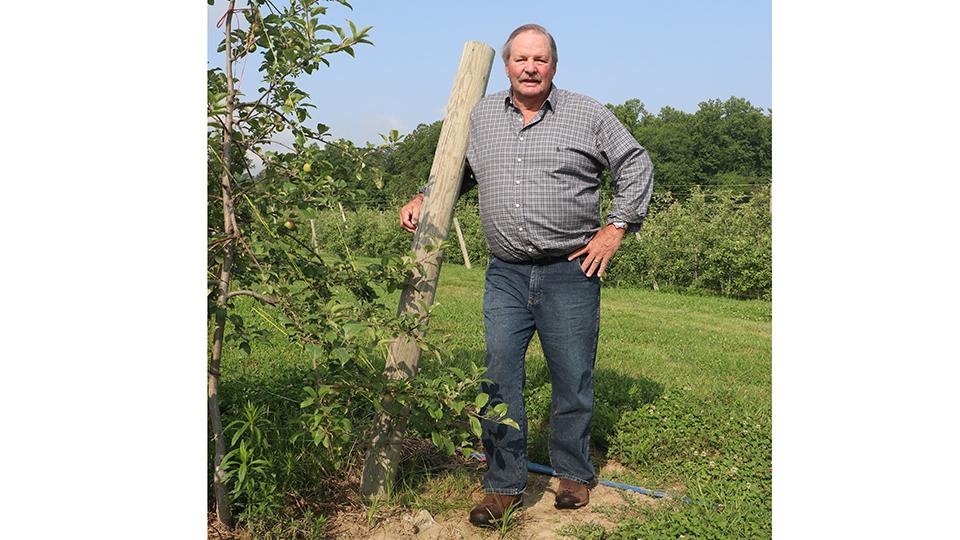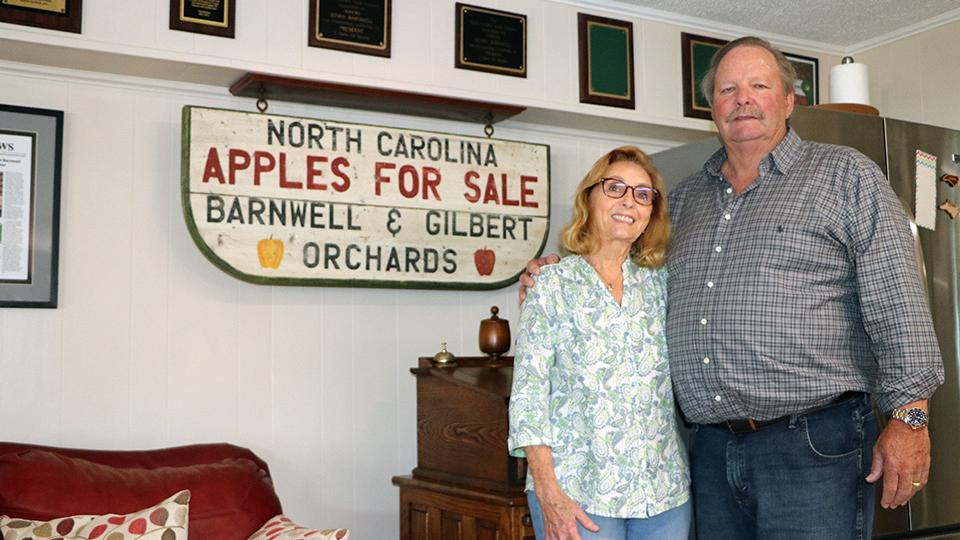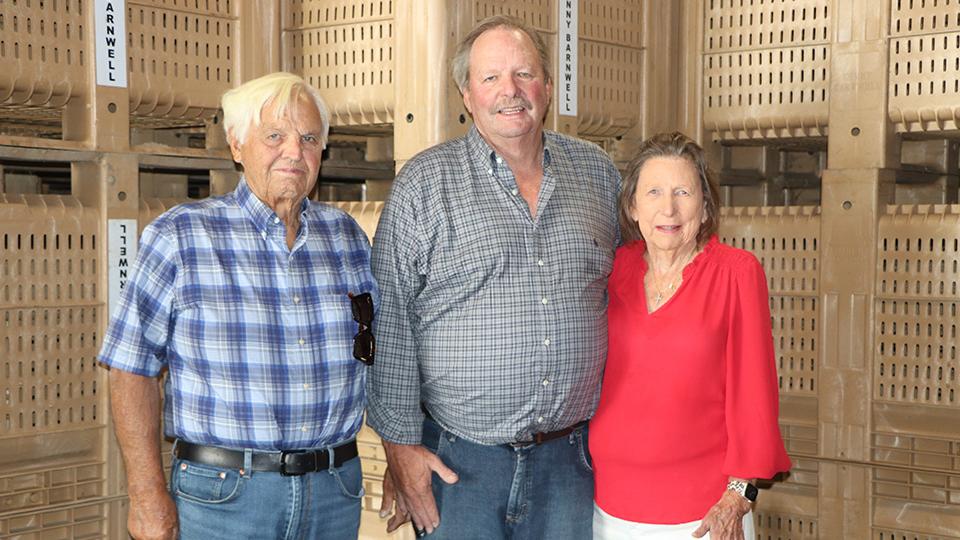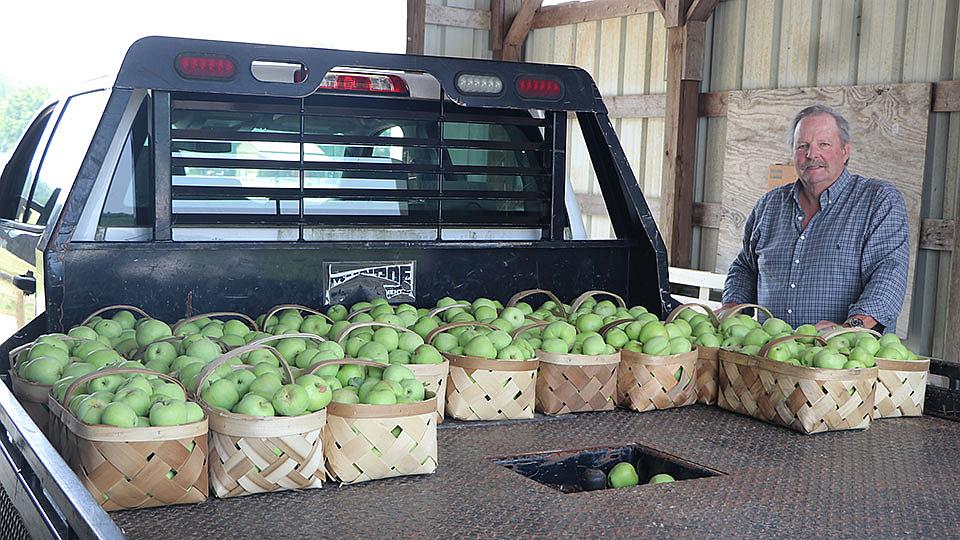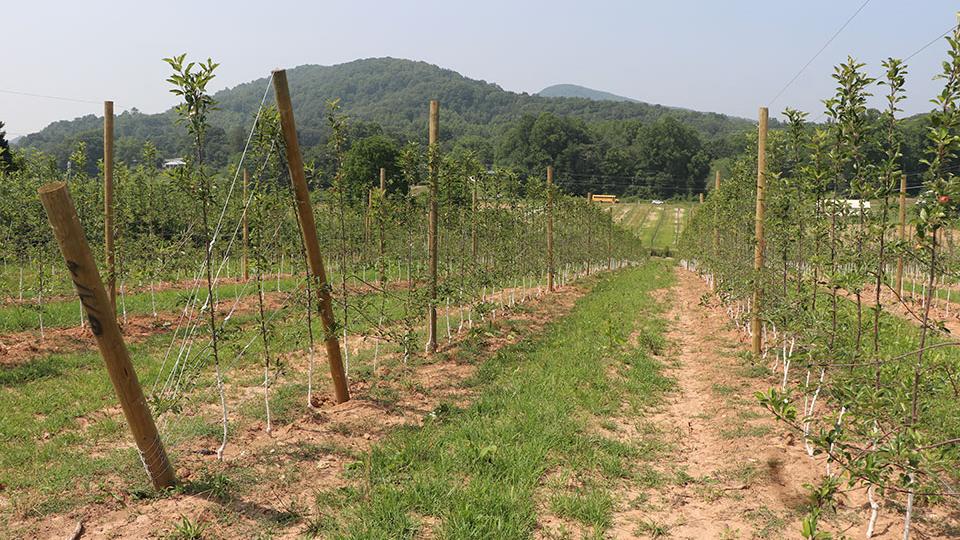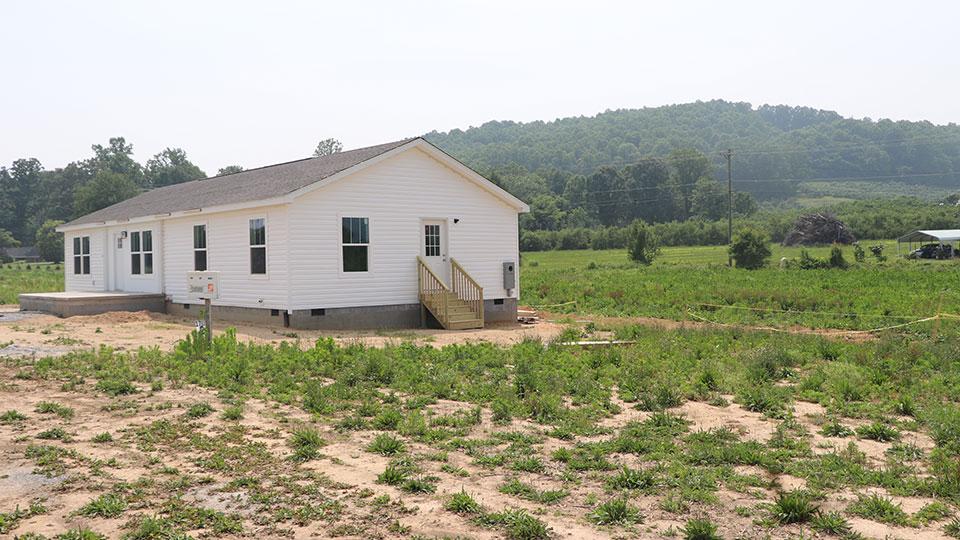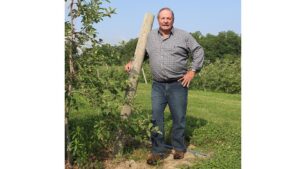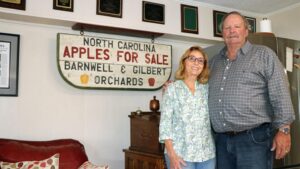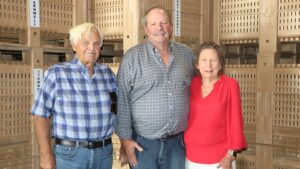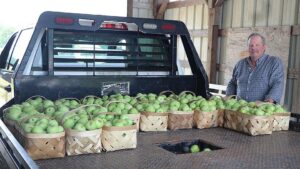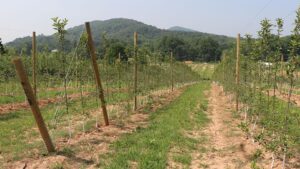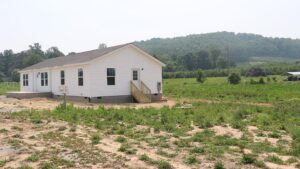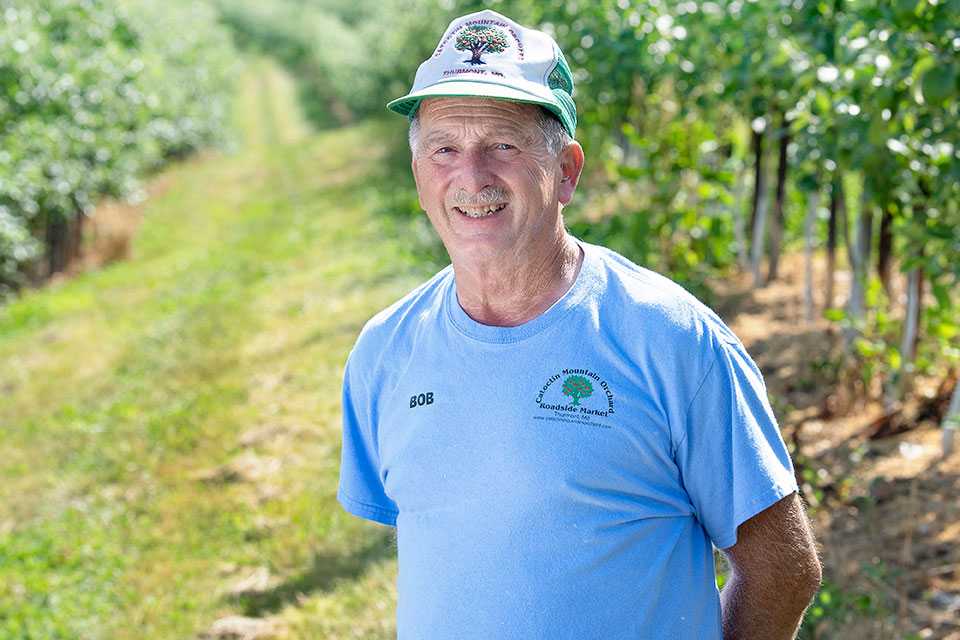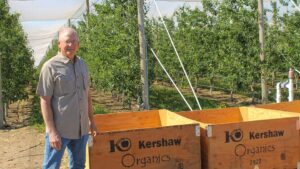Congratulations to the 2023 Apple Grower of the Year — A Great Defender
At this point, Kenny Barnwell can make the 10-hour drive with his eyes closed. It starts in Edneyville, NC, where pretty much all his journeys have begun. Now 64, Barnwell prides himself as a lifelong resident of the unincorporated community in Henderson County.
This neck of western North Carolina, in the Appalachian temperate rainforest, enjoys a typically cool and mild climate. In other words, not too hot, not too cold. Juuuuust right for a lot of people — way too many people for anyone concerned about farmland preservation and the future of agriculture in general.
At least six generations of Barnwells have certainly considered the location to be the best in the nation; the family has been growing apples in Henderson County since the 1800s. Its hope now is that future growers — namesakes or not — will carry on the area’s apple-growing legacy despite ever-increasing challenges that farmers of all crops are facing in North Carolina and the rest of the country.
Which brings us back to Kenny Barnwell and his calling card as the American Fruit Grower SM 2023 Apple Grower of the Year. That familiar drive out of Edneyville — the one he estimates to have made 18 times the last two decades — takes him to Washington, DC, and back.
“My previous truck could drive there by itself,” he says.
What compels Barnwell to travel so frequently between the hills of Appalachia and Capitol Hill? In a word — you. Whether that refers to growers or consumers matters little to Barnwell. He cares about agriculture from all sides.
“We need to make sure we protect our farm-land. We need to work on protecting specialty crops a little more than we’re doing now,” Barnwell says. “Two years ago we became a net importer of specialty crops for the first time in the history of the United States. Wouldn’t you rather have something that is grown in the United States?”
GETTING INVOLVED
Advocating for apple growers has not always been Barnwell’s calling. He never intended to become the industry’s king of The Hill. In fact, he graduated from Greensboro College in 1980 with a degree in chemistry.
“My grandparents on both sides grew apples, but my mother and father were educators. When I went to college, the last thing on my mind was becoming an apple grower,” he says. “I came back and didn’t really hunt for a job that hard. I started helping in the family business. My uncle had taken over what my grandfather had done, and I kind of grew into it.”
In 1989 Kenny Barnwell assumed ownership of the family farm under the name Kenny Barnwell Orchards. Across 150 acres of apple trees, he has never stopped “changing and expanding and trying different things,” he says. Outside those orchards, he has established himself as the grower with all the right connections.
Barnwell first turned to advocacy, he says, to fill a leadership void that had developed in North Carolina after a period of great advancement within the industry.
“When I was in college, we had some truly outstanding agricultural leaders at that time. They went to the North Carolina legislature, and they got money earmarked for apple research,” he says.
In turn, North Carolina State University Horticulturist Sylvia Blankenship and Biochemist Edward Sisler identified 1-methylcyclopropene (1-MCP), the compound that extends the storage life of fruit.
“Sylvia’s position was created by a special bill that the apple growers of North Carolina got passed in the legislature,” Barnwell says. “So, all of you that use SmartFresh (AgroFresh) have some of my older colleagues to thank for that. We had that core group of leaders. And then we kind of went a generation without that. That’s when I started to get involved.”
That meant traveling to Raleigh three or four times a year and Washington at least once a year, “just to stay relevant,” according to Barnwell. “It was important,” he says. “We were missing out on programs just because we weren’t making our voice heard.”
Thanks to Kenny Barnwell, that is no longer the case.
FARMLAND PRESERVATION
Barnwell is most passionate about farmland preservation, an important tool, he says, at regional, state, and national levels. He aims to limit the conversion of agricultural land to other uses that otherwise might be more financially attractive to the landowners.
“The land in Henderson County is very pricey. All these people have figured it out,” Barnwell says. “They come from New York and Chicago, where they sold all their high-dollar houses there. They go to Florida and buy a condo there and decide it’s too hot, and hurricane season comes, and they come back up to Henderson County. We’ve had that tradition forever.”
Only the situation is worse now, he says. And it is literally spreading — from the city of Hendersonville (population: 15,145) into “the country,” he adds.
“It’s causing us to fight. Do you want to farm? Or do you want to sell out and not have to work the rest of your life?” Barnwell says. “Some of these offers are more money than you will make and your kid farming that same land will make. If you can cash out, it’s time right now for some really serious money.”
Such transactions are now occurring on properties without water lines and sewers. “They’re going to have to drill a well and put in a septic tank,” Barnwell says. “I never thought I’d see houses going into the areas that I’m talking about. That’s farming country, and it always has been.”
Barnwell believes a “fair amount” of money in the federal budget will be used to purchase the development rights for such farmland.
“It’s just like conservation. If your land was worth $40,000 an acre, and the agricultural value is $15,000, they would pay you that $25,000 difference. And that land would stay in agriculture,” he says. “You could sell it for $15,000 — make yourself 100% whole — but the next person who bought it, because they bought it at such a lesser price, would have to stay in agriculture. That is something that I think needs worked on, and it’s something we’re working on a lot in Henderson County.”
APPLE IMPORTS
In 2019 Barnwell successfully lobbied Congressional members to stop the import of European apples into the U.S. at a time when domestic growers had an abundance of apples in storage. He took action while recalling the oil embargo of the 1970s that led to supply shortages, lines at gas stations, and prices at the pump roughly doubling.
“I started college in ’76, and I saw what those restrictions did. Any time I came home, I had to make sure my gas tank was full before I left to go back to school, just to Greensboro, because there was no gas,” Barnwell says. “It’s one thing not being able to get to town on a Saturday because the gas is short. It’s another thing when you get to town and there is nothing on the shelves to buy.”
RELATED CONTENT: A LOOK AT APPLE GROWER OF THE YEAR WINNERS 1989 to PRESENT
OTHER PRIORITIES
The issue of labor particularly worries Barnwell. “We deal with the weather, we deal with federal regulations, and we deal with labor, and I’m really not sure which one I’m most afraid of,” he says.
Barnwell says he and his colleagues are trying to be proactive with immigration, “but until we can fix the problem at the border, it’s going to be hard to do anything” on that front.
“I think immigration is going to have to be done one piece at a time,” he says. “We do agriculture first. I know, I’m a farmer, but a reliable supply of food is a matter of national security. When we start having to go outside the U.S. for our food, then that is a problem.”
Successful initiatives led by Kenny Barnwell in recent years have included:
• Representing grower interests in the federal crop insurance program at the April 2023 regional listening session conducted by the Risk Management Association, resulting in favorable policy revisions currently under consideration.
• Consulting and lobbying members of the General Assembly on behalf of all fruit and vegetable growers who suffered devasting losses in 2021 from a spring freeze that was followed by flooding from Tropical Storm Fred. The efforts resulted in $14 million in aid that helped keep many farms in business.
• Supplying apples for the “Farmers to Families Food Box” program during the 2020 pandemic.
WHO WANTS THE BATON?
As he gets older, Barnwell urges younger growers to begin advocating for their industry. He mentors such a group — “not a huge group but a pretty good group” that, he says, “is very active. But we want to be proactive.”
As for advice, Barnwell touts political networking and donating.
“Any young farmer, as you’re starting out, and your congressman or your senator is having a little get-together, a town hall, or one of these little meetings that cost you a hundred dollars for a single person — go to them,” he says. “Start making your name known to your elected officials. Move your contribution level up any chance you get. Because good or bad, they listen to the people that write checks to them.
“It’s important that agriculture, as our numbers dwindle, still needs to work very hard to have a voice. If you give this much money, you get a cell phone number. If you give this much money, they will actually answer it. Understand, you want the right people there, so help them get there if you are financially able. It’s just something that has to be done. Go and at least meet them.”
In August, Kenny Barnwell will be formally presented the 2023 Apple Grower of the Year Award, sponsored by Valent USA, at the U.S. Apple Association’s annual Apple Crop Outlook and Marketing Conference in Chicago.





